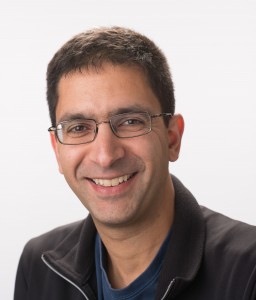
Lior Pachter Snubbed for Asking Relevant Questions on a Paper
A rather bizarre bioinformatics paper showed up in F1000. It made complete mockery of scientific publication standards with the excuse of ‘doing something new’. The paper has over 50 authors, and some are included for doing less than minor tasks. For example, one author only added two slashes to turn ‘http:contributor-covenant.org’ into ‘http://contributor- covenant.org’. That surely appears like a major contribution. Another author corrected only a typo in the code (changed ‘activae’ to ‘activate’).
It is also not clear, whether authors are listed twice or more in the authors’ list, because some names are included as pseudonyms (e.g. ‘en zyme’). Apparently the senior author gave more importance to github ID than real name. Berkeley Professor Lior Pachter’s attempt to sort that out had been met with very rude protest from the senior author of the F1000 paper. Pachter wrote in the comment section -

I noticed that “en zyme” is listed as an author with the affiliation of “independent Researcher in Boston, MA”. This individual appears to be Nathan Kohn, a part time lecturer at Boston University Metropolitan College and should be listed as such (assuming his contribution merits authorship).
The senior author of the paper replied in his blog -
Please note that there is a special place in hell reserved for people who attempt to deanonymize someone’s pseudonym on a whim; this is both unprofessional and potentially harmful to the individual in question. Yes, I’m talking to you, Lior.
That kind of rude response was definitely uncalled for, given that Pachter was making a very valid point (in fact two, because he also pointed out negligible contributions of authors).
When it comes to using pseudonyms for publishing paper, people often mention Gosset’s taking the name ‘Student’ to publish his famous paper on t-test. Wiki says -
The Student’s t-test work was submitted to and accepted in the journal Biometrika and published in 1908. Company policy at Guinness forbade its chemists from publishing their findings, so Gosset published his statistical work under the pseudonym “Student”.
What that example proves in the current context is anyone’s guess. If one looks into history, one can definitely find exceptions of all kinds - famous professor not giving credit to student, student stealing research results from professor and later becoming famous, people publishing research results based on what they overheard from others in conferences, and so on. Does that mean all those actions are justified, because someone well-known did before? Looks like even the author(s) of the wiki page is apologetic about Gosset’s apparently harmless deed and added a poor ‘mea culpa’ to explain that Gosset was not cheating his company -
Guinness had a policy of allowing technical staff leave for study (so-called “study leave”), which Gosset used during the first two terms of the 19061907 academic year in Professor Karl Pearsons Biometric Laboratory at University College London. Gosset’s identity was then known to fellow statisticians and to editor-in-chief Karl Pearson.[citation needed] It is not clear how much of the work Gosset performed while he was at Guinness and how much was done when he was on study leave at University College London.
A better argument would be discussing the merits and demerits of using pseudonyms for scientific papers, and as demerits, we can see many. Someone can cheat his university or company out of legitimate intellectual property rights. Someone can take two pseudonyms to argue in favor of or against a controversial scientific argument, and appear victorious no matter which side wins. Imagine Dr. Jekyll supporting Darwin’s theory of evolution in late 19th century and Mr. Hyde writing papers it. However, having that kind of intelligent discussion does not seem appropriate for the F1000 paper, given that anyone who can fog a mirror has been made an author.
The senior author thinks his case is unusual, because he is publishing a paper on a software. A software is already a copyrighted publication by itself, and the only reasons another paper needs to announce its arrival are (a) present unique algorithmic contribution, (b) make grant Gods, who give more importance to papers than computer programs, happy. In the first case, 50 people rarely create an algorithm and I doubt that is the case here. Speaking of the second case, this mockery of science has been funded by NHGRI, which is a mockery of science by itself.
Pachter has taken a courageous stand given the risk of pointing out discrepancies in a paper with 50 authors and annoying many of them. I am puzzled the other authors allowed this nonsense to take place in their name.